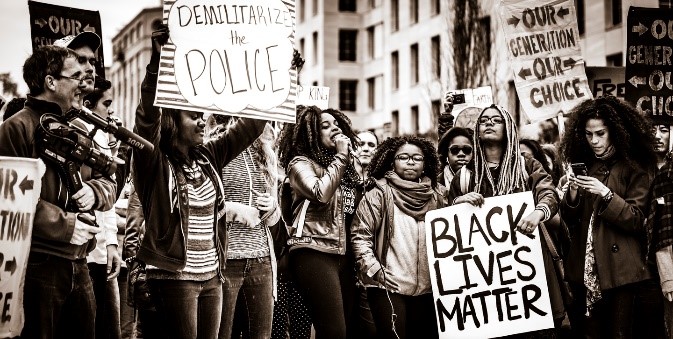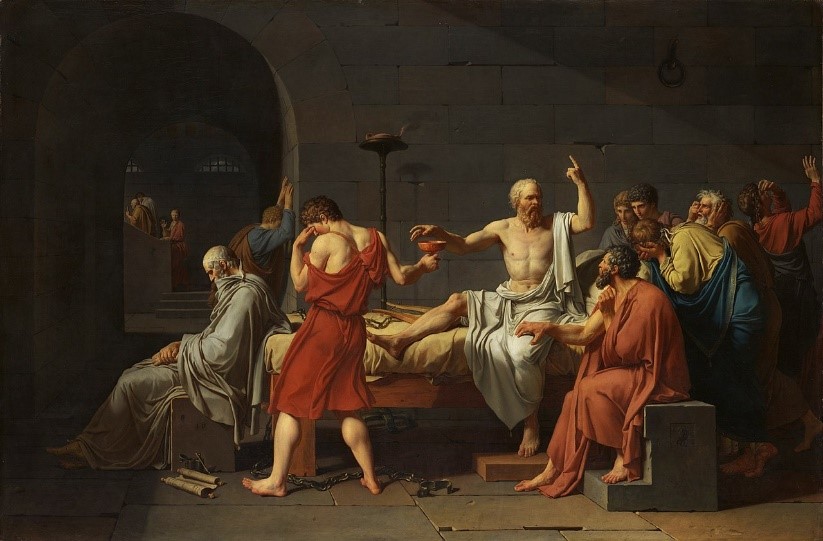First-year Seminar (FYSM) courses are smaller classes (with a maximum of 30 students) designed to give students the unique opportunity to discuss and research topics of interest in a core subject area.
While most university students have to wait until their third or fourth year of study before having the chance to participate in a more intimate seminar setting, as a Carleton University Bachelor of Arts student, the engaging seminar experience is available to you at the first-year level.
Fall 2020
 Instructor: Philippe-Antoine Hoyeck
Instructor: Philippe-Antoine Hoyeck
FYSM 1210: Special Topics in Philosophy
[0.5 credit] Fall 2020
Tuesdays and Thursdays, 1:00 – 2:30 pm.
“The Politics of Colour: Theory and Practice”
If you’ve ever been on social media, you may have noticed that the topics of race and ethnicity come up a lot in political discussion. Whether it’s in news coverage of protest movements like Black Lives Matter and Idle No More, in YouTube videos about affirmative action and incarceration rates, or in President Trump’s tweets about the Charlottesville protests, the politics of colour is everywhere.
These political movements, events, and debates raise all kinds of difficult philosophical questions. What is race? Do races exist? How do they differ from ethnicities? How do we even define racism, and is there such a thing as reverse racism? Is justice colour-blind, or does it demand race-conscious policies like affirmative action and race-based representation? And most importantly, what should you do about it?
The point of this course is to examine the concepts of race and ethnicity and their implications for politics. It will draw on a variety of sources, including news articles, social media, and scholarly publications, to introduce students to key philosophical debates around the concepts of race, ethnicity, and social justice. It will also encourage students to think critically about current social and political issues pertaining to these topics.
The course will use a combination of resources provided on CULearn and weekly seminar sessions and will strongly emphasize self-directed learning. Students will have the opportunity to develop research projects on a particular social or political issue under the instructor’s close supervision. They will also receive several opportunities to develop and refine research and writing skills that will serve them throughout their university career.
Photo credit: Johnny Silvercloud
___________________________________________________________

Instructor: Christopher McGrath
FYSM 1211A: Looking at Philosophy
[0.5 credit] Fall 2020
Mondays and Wednesdays, 1:00 – 2:30 pm.
“The Last Days and Death of Socrates – A Narrative for the Birth of Philosophy”
In this seminar, we will explore four dialogues in which Plato describes the last days and the death of his teacher, Socrates: the Euthyphro, the Apology of Socrates, the Crito, and the Phaedo.
This narrative serves a mythical purpose: to present us with an ideal of what it means to speak and live in accordance with reason. Plato’s four dialogues confront us with questions such as: if we commit to being reasonable, what is our relation to the authority of tradition? To the opinions of the crowd? To our own biological imperative to survive?
Can we find something that moves us other than conventional beliefs and animal impulse? In raising these issues, Plato introduces us to the fundamental concerns of philosophy: the basis of moral value, the basis of knowledge, the basis of a just society, and finally our own nature as human beings.
While the goal of this seminar is to explore Plato’s dialogues, we will supplement them with more recent readings in the history of philosophy to try to understand what philosophy is, and how it relates to a broader project concerned with the rational organization of human life. Through this work, we will hone our skills in reading, interpretation, critical thinking, and scholarly writing.
Winter 2021
 Instructor: Professor Gabriele Contessa
Instructor: Professor Gabriele Contessa
FYSM 1210A Special Topics in Philosophy
[0.5 credit] Winter 2021
Wednesdays and Fridays, 2:30 – 4:00 pm.
“Fake News, Fad Diets, and Flat Earthers: Knowledge (and Ignorance) in a Social World”
Epistemology is the branch of philosophy devoted to studying knowledge and belief. Traditionally, epistemology focussed primarily on how individuals get to know themselves and the world around them. However, social epistemologists argue that the traditional approach ignores the social dimensions of knowledge and, in particular, the fact that most of what we know we learn from others. 
Moreover, while traditional epistemologists are mostly interested in abstract questions about knowledge and justification, social epistemologists are primarily interested in applied issues, such as testimony, disagreement, fake news, epistemic bubbles, conspiracy theories, science denialism, the relationship between experts and lay persons as well as the epistemic injustices faced by members of marginalized groups. In this seminar, we will explore some of these applied issues as well as discussing more theoretical questions about knowledge (and ignorance) in a social world.
 Instructor: TBA
Instructor: TBA
FYSM1210: Special Topics in Philosophy
[0.5 credit] Winter 2021
Mondays and Wednesday, 11:30 am – 1:00 pm. (tentative)
“Philosophy of Mind and Artificial Intelligence”
The seminar will be in the area of philosophy of mind and artificial intelligence. Specific topic and Instructor TBA.